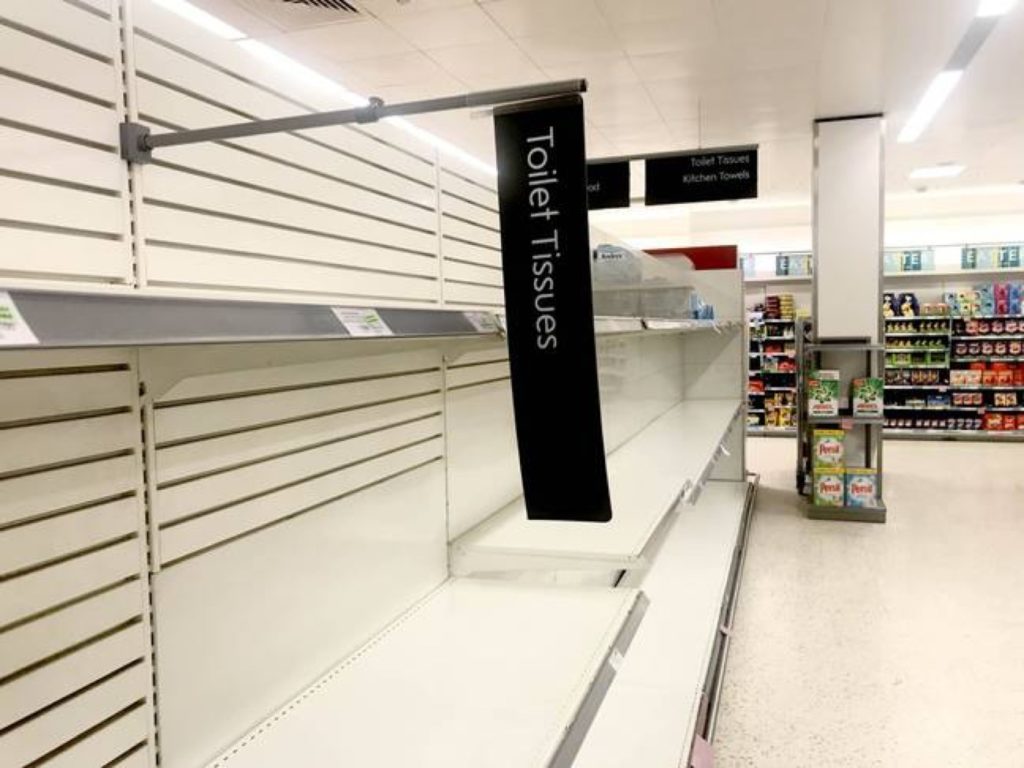Despite the government telling us to not “panic buy” amid coronavirus fears, but many are doing the exact opposite. It seems that every other social media post is about panic buying, but why toilet paper?
Experts in psychology explain the science behind stockpiling and why toilet roll has become a sought after commodity.
Dr Dimitrios Tsivrikos an expert in consumer and behavioural science at the University College London explains: “In public health issues we have no idea about the time or intensity of the situation.
“When we get messages on a daily basis that we should go into panic mode that we buy into more than we need to.”
He said that because toilet paper has a longer shelf-life than many food items, is prominently featured in aisles and is big in size, we are psychologically drawn to purchasing it in times of crisis.
He said: “The bigger they are, the more important we think they are.
“If we had an international sign for panic it would be a traffic warning sign with a toilet paper roll in the middle.”
Our brains are hard-wired to watch out for threat and seek safety, which intensifies when a danger is new and out of control.
Shoppers have overestimated the risks of dying from coronavirus.
Far more people die in car accidents or household accidents per year but we don’t panic in the morning before we go to work about these things.
When we stand in front of empty shelves, it’s understandable people fear that stocks will run out so they buy far more than they need.

But “panics” usually decline after a month when people have had time to think more rationally.
This becomes dangerous as some goods such as soap, medicines and sanitisers become unavailable for those in immediate need.
It is more obvious when an aisle of toilet paper is empty, compared to other smaller items, which leads to the craze over the item intensifying.
This intensity is likely to be highest in Western countries, because it’s hard to imagine what we could clean ourselves with without it. Faecal matters can carry diseases and can trigger our need to feel safe as well.
Panic buying toilet paper is ‘ridiculous’
But psychologists say stockpiling things like toilet paper is not going to get you from A to B in a life or death situation – food is what people would need.
From this behaviour, it’s clear many people are more concerned about holding on to those first-world comforts of being able to use the toilet, than actual survival.
While it was understandable that people would feel concerned about hygiene during self-isolation, the amount people stockpiling is irrational.
People are not reacting to the virus, they’re reacting to the fear of what’s going to happen if everyone “panic buys”. And it’s that fear which is creating the panic buying in the first place which in turn feeds the whole cycle. And that’s the problem.















